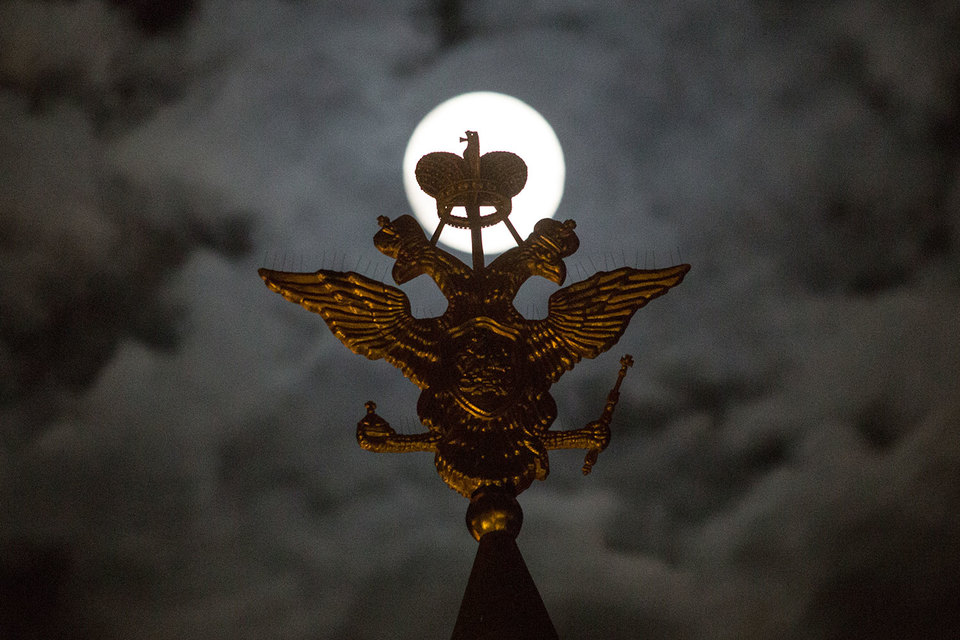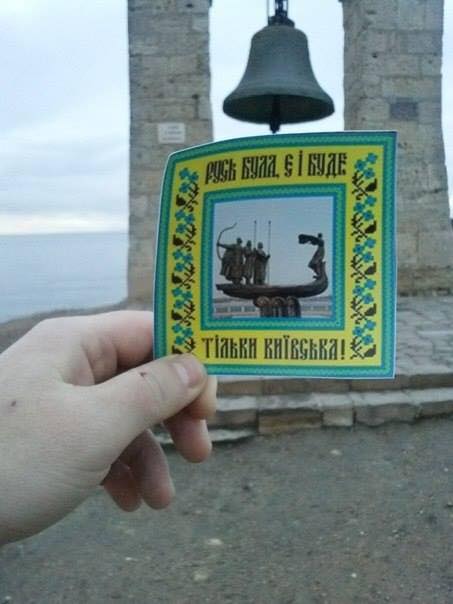In 1991, Russian liberals successfully defeated communism, but they failed to understand that they needed to defeat a far more deeply rooted problem: the imperialism that had informed Russia and then the Soviet Union for centuries. And as a result, that imperialism has proved remarkably alive to this day, Victor Shenderovich says.
In his essay in Nezavisimaya gazeta, the Moscow writer does not stress but he could very well have observed that far too many Western leaders assumed that the victory over communism was sufficient – “the end of history
,” some called it -- to put Russia on the path to civilizational greatness.
This failure to understand what was at stake and what was necessary, Shenderovich continues, has come back to haunt Russia and the world and will continue to do so until it is addressed. That requires, he argues, that everyone understand the fundamental differences between civilizations and empires.
Russia reached its apogee as a civilization in the eighteenth and nineteenth century when its intellectuals became Europeans; but it reached its height as an empire only the middle of the 20th century when the Soviet Union dominated half the world. Unfortunately, in Russia’s case, this imperial tradition predominated and predominates over the civilizational one.
It doesn’t have to be that way, Shenderovich says. “In England, civilization triumphed.” It has demonstrated that a strong civilization can “survive a great empire,” retaining only “decorative” elements of the latter and that by sacrificing the empire, it gains the possibility for moving forward.
Russia acquired a European civilization in the 18th century, and it had a communist civilization for only about two decades right after the revolution. But after each of these breakthroughs, it retreated into its imperial nature, seeking to conquer others and justifying authoritarianism in the name of that expansion.
According to the Moscow writer, “the majority of Russians sincerely consider themselves part of the civilization which gave the world Leo Tolstoy … Our dominant gene is imperial and not civilizational.” And that explains the success Putin has enjoyed. As some have noted, he is “an outstanding politician of the 19th century” who confuses the acquisition of territory with greatness.”
As Shenderovich points out, “the United States over the course of the entire 20th century did not add one square meter to its territory. Civilization spread the influence of Silicon Valley! And Russian civilization has or more correctly had enormous possibilities to do the same.” But it did not make use of them.
Instead, “Putin like his predecessors remembered about ‘the Russian world’ only in connection with the imperial theme.” That isn’t surprising because “the theme of the defense of civilization contradicted the imperial theme.” As Vasily Klyuchevsky observed, Russians are like gypsies who find it easier to settle new territories than to develop old ones.
In 1991, it appeared that Russia was about to break out of its imperial past; but it didn’t because the price of oil didn’t support reformer Gaidar as it later propped up Putin. Instead, Russians cursed the wild 1990s and celebrated the Putin oil boom – a pattern that has happened all too often in Russian history.
Shenderovich recalls the comment of one historian that “Russian civilization did not defeat the Tatars but only took over the instruments the Tatars had used. Today’s Putin federalism is just the same yasak or collection of tribune from the lands” as the Tatar khanate collected almost a millennium ago.
Moreover, Russian rulers used the threat of retribution from the masses to keep most of the intellectuals in line – and Putin continues to do so to this day. And having been successful at that, for Putin’s regime, “the return to the imperial theme was almost pre-determined. A decade of Russian freedom which did not produce a breakthrough came to an end.”
Russian liberalism failed and its support from abroad failed as well, Shenderovich says. “After September 11, 2001, the US focused all of its attention in the Taliban-Iran direction.” Putin understood this and met it in a way that served his interests. He provided the US with a way to get arms to Afghanistan; and the West did what he hoped.
For that Russian support, he says, “America forgave Putin for everything – the suppression of NTV, the arrest of Khodorkovsky and the falsification” of elections. That ended with Putin’s invasion of Ukraine
and his Anschluss of Crimea; but his degradation of the population meant that the party of television continues to defeat the party of the refrigerator.
That won’t last forever, Shenderovich concludes. “Any narcotic sooner or later enters into the strongest conflict with the real needs of the organism.” How long that will take is far from clear, but even Russia can’t escape from the laws of history. If it tries, it will only fall further and further behind.
Read More:
- Search Russians far more imperialist now than they were in Soviet times, Cossack historian says
- “Malorossiya”: yet another Russian imperial myth salvaged from the garbage dump of history
- Russia’s imperial crackdown on the memory of indigenous victims of deportations
- Imperial idiocy. How Putin became Ukraine’s ally
- Ukrainian independence exposed bankruptcy of all three Russian imperial projects, Ikhlov says
- Putin regime has long had an ideology – Great Power Imperialism — Pavlova says
- Kerch bridge emblematic of new Russian imperialism, Kazarin says





